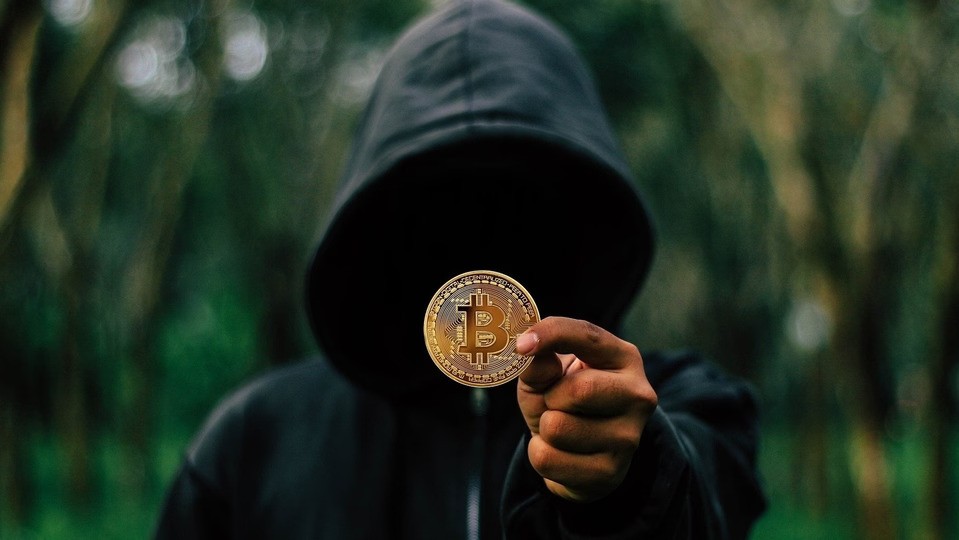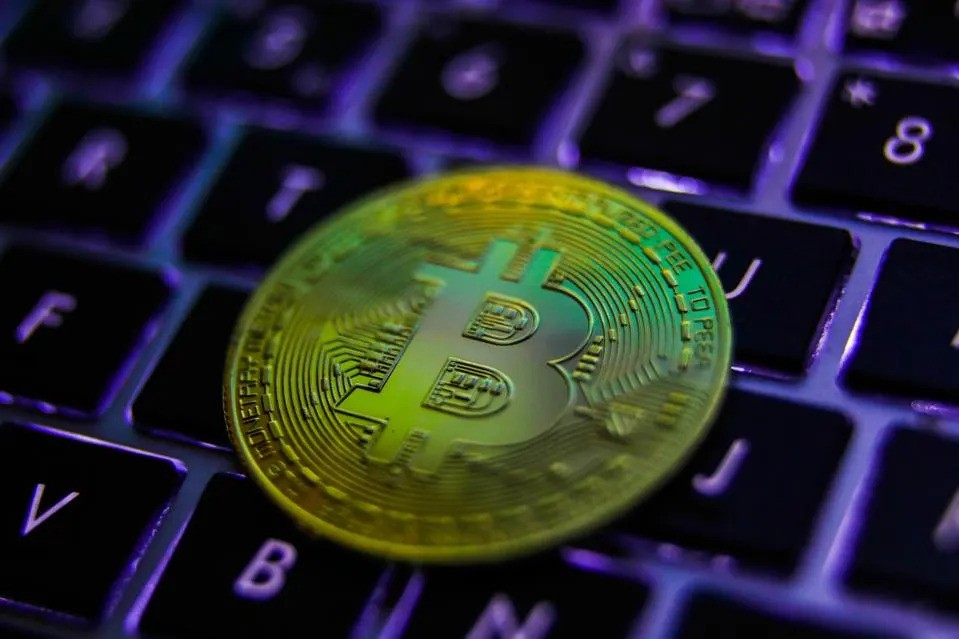Bitcoin Fraud Prevention - Strategies For Avoiding Crypto Scams
In the dynamic world of cryptocurrencies, where innovation meets opportunity, the threat of scams and fraudulent activities looms large. As the popularity of Bitcoin and other digital currencies continues to surge, so does the necessity for robust Bitcoin fraud prevention strategies.
Author:Gordon DickersonReviewer:James PierceFeb 01, 202437K Shares627.6K Views

In the dynamic world of cryptocurrencies, where innovation meets opportunity, the threat of scams and fraudulent activities looms large. As the popularity of Bitcoin and other digital currencies continues to surge, so does the necessity for robust Bitcoin fraud preventionstrategies. This article aims to equip you with essential knowledge and practical tactics to navigate the crypto landscape safely, ensuring your investments remain secure and protected from malicious actors.
What Is Cryptocurrency Fraud?
Cryptocurrency fraud often involves deceptive practices to obtain cryptocurrency through illegitimate means or the creation of fake or misleading crypto-based products and operations to solicit dishonest investments in other assets. Recovering from crypto fraud poses significant challenges due to the nature of blockchain technology.
Transactions recorded on the blockchain typically require consensus from the majority of network users, making it difficult to alter or manipulate them without approval. Also, attempts to force changes are usually met with resistance, as users can restore the blockchain to its original state before any unauthorized modifications are made.
Common Bitcoin Fraud
Bitcoin fraud schemes typically aim to achieve one of three objectives. Firstly, they may deceive individuals into transferring Bitcoin under pretenses or in exchange for counterfeit assets. Secondly, they might manipulate individuals into inadvertently disclosing access credentials for their Bitcoin wallets. Lastly, they may make fraudulent promises of bitcoin or related products in exchange for investments comprising other types of assets.
Here are several common examples of Bitcoin fraud.
Impersonation Scams
In this type of scam, a fraudster pretends to be someone the victim trusts, such as a friend, family member, or romantic partner. They fabricate a false narrative to justify why they urgently need money, insisting that it must be in Bitcoin. However, their true intention is simply to deceive the victim and obtain something valuable without providing anything in return.
Phishing Scams
Once more, a criminal assumes the identity of a reputable entity, such as a company, government agency, or law enforcement body. They reach out to individuals, asserting the need for identity or access credentials - often about Bitcoin wallets - for purported official purposes.
Employing convincing messages and/or directing recipients to authentic-looking websites, they aim to coax individuals into willingly divulging their private information. However, their true intent is to exploit this information for fraudulent activities.
Bitcoin Exchange Fraud
Bitcoin exchange fraud typically begins when a criminal impersonates a member of a Bitcoin exchange's customer support team. Similar to tactics used in blackmail or phishing schemes, they inform the individual of an issue with their account (even if no problem has been reported) and request the individual's Bitcoin wallet credentials and/or a sum of Bitcoin to resolve the supposed issue. However, their true motive is to deceive the individual into providing free cryptocurrency or granting unauthorized access to their Bitcoin wallet.
Bitcoin Mining Fraud
Bitcoin mining fraud occurs when criminals seek investments in Bitcoin mining hardware, pledging to distribute a portion of the Bitcoin they generate to investors. However, the scheme ultimately reveals itself as a scam, with investors receiving significantly lower returns than initially promised, if they receive any returns at all.
How To Spot Bitcoin Scams
Identifying Bitcoin scams is crucial to safeguarding your investments and personal information in the cryptocurrency space. Here are several key indicators to help you spot potential Bitcoin scams:
- Unsolicited contact -Be wary of unsolicited communication, whether it's through email, social media, or messaging apps, especially if it involves urgent requests for money or personal information.
- Too good to be true promises -Watch out for promises of guaranteed high returns with little to no risk. If an investment opportunity sounds too good to be true, it likely is.
- Pressure to act quickly -Scammers often use pressure tactics to push you into making hasty decisions. They may claim that you need to act fast to secure an opportunity or avoid missing out on profits.
- Requests for personal information -Legitimate entities rarely ask for sensitive personal information, such as passwords or private keys, especially unsolicited. Never share your private keys or login credentials with anyone.
- Lack of transparency -If an investment opportunity lacks clear information about the company, its team, or its business model, proceed with caution. Legitimate businesses are transparent about their operations.
- Unsolicited remote access -Be cautious of requests for remote access to your computer or mobile device. Scammers may use this tactic to install malware or steal sensitive information.
- Poorly designed websites or apps -Legitimate businesses typically invest in professional-looking websites and apps. Be skeptical of platforms with spelling errors, poor grammar, or unprofessional design.
- Phishing attempts -Be vigilant against phishing attempts, where scammers impersonate legitimate websites or services to trick you into providing your login credentials or personal information.
- Lack of regulation or licensing -Check if the platform or service is regulated or licensed by relevant authorities. Lack of regulation may indicate a higher risk of fraud.
- Trust your instincts -If something feels off or too risky, trust your instincts and err on the side of caution. It's better to miss out on a potential opportunity than to fall victim to a scam.
By staying informed and vigilant, you can protect yourself from falling victim to Bitcoin scams and safeguard your investments in the cryptocurrency market.
Bitcoin Fraud Prevention
Bitcoin fraud prevention is paramount in the cryptocurrency market, where scams abound. Implementing proactive measures can help protect your investments and mitigate the risk of falling victim to fraudulent schemes. Here are key strategies for preventing Bitcoin fraud:
Secure Your Wallets
Use reputable and secure Bitcoin wallets to store your cryptocurrency. Opt for wallets that offer robust security features such as two-factor authentication (2FA), encryption, and multi-signature functionality. Keep your wallet software up-to-date to guard against potential vulnerabilities.
Practice Safe Trading
Exercise caution when trading Bitcoin on exchanges. Choose well-established and regulated exchanges with a track record of security and reliability. Verify the exchange's security measures, such as cold storage for funds and regular security audits. Avoid sharing your login credentials or private keys with anyone, and be wary of phishing attempts targeting exchange users.
Verify Transactions
Always double-check transaction details before sending Bitcoin. Verify the recipient's wallet address and the transaction amount to ensure accuracy. Be cautious of phishing emails or fake websites designed to mimic legitimate cryptocurrency services. Verify the authenticity of the website or platform before entering any sensitive information.
Beware Of Investment Scams
Exercise skepticism towards investment opportunities that promise guaranteed high returns with little to no risk. Conduct thorough research on investment opportunities and scrutinize the credentials of individuals or companies offering them. Be wary of unsolicited investment offers, especially those received through email, social media, or messaging platforms.
Educate Yourself
Stay informed about common Bitcoin scams and fraud tactics prevalent in the cryptocurrency market. Educate yourself about Bitcoin technology, blockchain fundamentals, and best practices for securing your digital assets. Engage with reputable sources of information, such as official Bitcoin websites, cryptocurrency forums, and trusted industry experts.
Stay Vigilant
Remain vigilant and alert to potential signs of Bitcoin fraud. Watch out for red flags such as unsolicited communication, high-pressure sales tactics, and requests for personal or financial information. Trust your instincts and err on the side of caution when encountering suspicious activities or offers.
Report Suspicious Activity
If you encounter suspected Bitcoin fraud or fraudulent activities, report them to relevant authorities and platforms. Many cryptocurrency exchanges and regulatory agencies have mechanisms in place for reporting fraud and suspicious transactions. By reporting fraudulent activities, you can help protect yourself and others from falling victim to scams.
How To Report Scams
If you've been a victim of a cryptocurrency scam or suspect fraudulent activity, several organizations can assist you. Utilize their online complaint forms to seek help:
- File a fraud report with the Federal Trade Commission (FTC).
- Submit complaints and tips to the Commodity Futures Trading Commission (CFTC).
- Report fraud to the Securities and Exchange Commission (SEC).
- File a complaint with the FBI Internet Crime Complaint Center (IC3).
Additionally, consider contacting the cryptocurrency exchange you use directly. Inquire about their fraud prevention measures and other safeguards in place to protect your crypto assets and funds.
Bitcoin Fraud Prevention - FAQ
How Can I Avoid Getting Scammed With Bitcoin?
No legitimate business or government will ever email, text, or message you on social media to ask for money. And they will never demand that you buy or pay with cryptocurrency. Never click on a link from an unexpected text, email, or social media message, even if it seems to come from a company you know.
Who Is The Bitcoin Fraud Guy?
Mr. Bankman-Fried rose to prominence by marketing himself as an unusual sort of billionaire - a force for good who accumulated wealth in the hopes of eventually giving it all away. He founded FTX in 2019 and raised billions of dollars from investors to turn it into one of the world's leading crypto companies.
Can You Track A Bitcoin Scammer?
Some exchanges will fulfill a request from our investigators to share the wallet holder's identification. However, most exchanges require this request to come directly from the police. Therefore, you will need to ask your local police station to email the relevant exchange.
In Conclusion
Safeguarding your crypto assets requires a proactive approach and a comprehensive understanding of Bitcoin fraud prevention techniques. By implementing the strategies outlined above, you can fortify your defenses against scams and fraudulent schemes, empowering yourself to participate confidently in the exciting world of cryptocurrency while mitigating risks. Stay vigilant and stay informed, and together, we can foster a safer environment for all participants in the crypto ecosystem.

Gordon Dickerson
Author
Gordon Dickerson, a visionary in Crypto, NFT, and Web3, brings over 10 years of expertise in blockchain technology.
With a Bachelor's in Computer Science from MIT and a Master's from Stanford, Gordon's strategic leadership has been instrumental in shaping global blockchain adoption. His commitment to inclusivity fosters a diverse ecosystem.
In his spare time, Gordon enjoys gourmet cooking, cycling, stargazing as an amateur astronomer, and exploring non-fiction literature.
His blend of expertise, credibility, and genuine passion for innovation makes him a trusted authority in decentralized technologies, driving impactful change with a personal touch.

James Pierce
Reviewer
James Pierce, a Finance and Crypto expert, brings over 15 years of experience to his writing. With a Master's degree in Finance from Harvard University, James's insightful articles and research papers have earned him recognition in the industry.
His expertise spans financial markets and digital currencies, making him a trusted source for analysis and commentary. James seamlessly integrates his passion for travel into his work, providing readers with a unique perspective on global finance and the digital economy.
Outside of writing, James enjoys photography, hiking, and exploring local cuisines during his travels.
Latest Articles
Popular Articles

